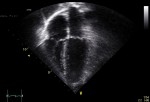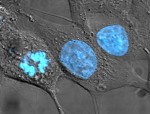For those of you who’ve been asleep for the past year: the health care costs conundrum remains unsolved. Our annual medical bills run in the neighborhood of $2.4 trillion and that number’s heading up. Reform, even in its watered-down, reddened form, has stalled.
Despite so much unending review of medical expenses – attributed variously to an unfit, aging population, expensive new cancer drugs, innovative procedures, insurance companies and big Pharma – there’s been surprisingly little consideration for patients’ preferences. What’s missing is a solid discussion of the type and extent of treatments people would want if they were sufficiently informed of their medical options and circumstances.
Maybe, if doctors would ask their adult patients how much care they really want, the price of health care would go down. That’s because many patients would choose less, at least in the way of technology, than their doctors prescribe. And more care.
What I’m talking about is the opposite of rationing. It’s about choosing.

